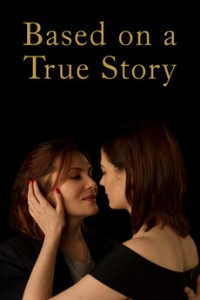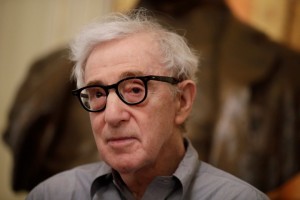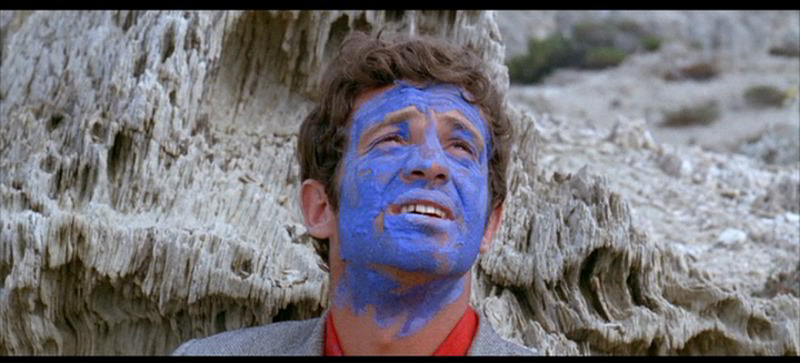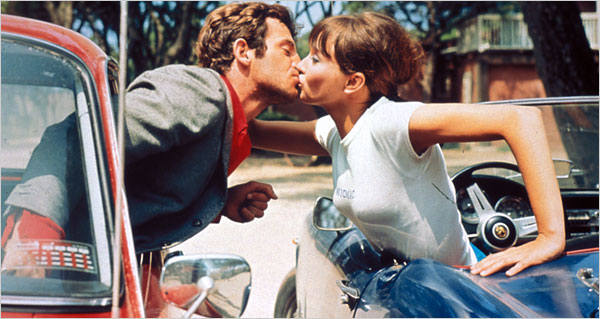My column for the December 2019 Caimán Cuadernos de Cine. — J.R.
En movimiento: Denial Incorporated and Cinematic Substitutes

Given how much we watch [TV] and what watching means, it’s inevitable, for those of us…who fancy ourselves voyeurs, to get the idea that these persons behind the glass — persons who are often the most colorful, attractive, animated, alive people in our daily experience — are also people who are oblivious to the fact that they are being watched. This illusion is toxic.
—David Foster Wallace


Insofar as “political correctness” often functions as a sad form of compensation for political powerlessness — so that one winds up eagerly penalizing a Roman Polanski or a Woody Allen for a real or imagined crime committed decades ago largely because one can’t find a way of getting rid of a Donald Trump in the present — the degree to which simple denial plays a role in governing one’s consumer choices needs to be recognized. What may be most significant about the flood of negative reviews in the U.S. given to Joker after both a slew of domestic mass shootings and the film winning a Golden Lion from Lucrecia Martel’s jury in Venice is how similar these reviews were to one another in both their phraseology and their arguments, comprising a herdlike form of collective expression that has to blame a movie for its frustration because it can’t (or at least won’t) blame the American gun lobby. For Read more
From the Chicago Reader, probably in its October 1, 1992 issue. (The Reader‘s web site claims absurdly that this capsule was published in 1985, two years before I moved to Chicago and seven years before this film was made.) The second illustration below is from the recent Criterion box set devoted to the so-called Koker trilogy, in which Mehrnaz Saeed-Vafa and I provide the audiocommentary to this film. — J.R.

Known less accurately as And Life Goes On . . . (to distinguish it from Bertrand Tavernier’s Life and Nothing But), this 1992 masterpiece by Abbas Kiarostami uses nonprofessional actors to restage real events. Accompanied by his little boy, a film director from Tehran drives into the mountainous region of northern Iran, recently devastated by an earthquake that’s killed more than 50,000 people. He searches through various villages for two child actors who appeared in Where Is the Friend’s House? (a 1987 Kiarostami feature), but what we find is more open-ended and mysterious: the resilience and in some cases the surprising optimism of people putting their lives back together, the beautiful landscapes, the alternating and overlapping viewpoints of the director and his son. A picaresque narrative with a profound sense of place and a philosophically weighted use of the long shot that occasionally calls to mind Tati, this haunting look at what does and doesn’t happen to people confronted by natural disaster won the Rossellini prize at the 1992 Cannes film festival, and it’s still one of the very best Iranian features I’ve seen. Read more
From the June 9, 1989 Chicago Reader. –J.R.

PIERROT LE FOU
**** (Masterpiece)
Directed and written by Jean-Luc Godard
With Jean-Paul Belmondo, Anna Karina, Dirk Sanders, Raymond Devos, Graziella Galvani, Roger Dutoit, Hans Meyer, Jimmy Karoubi, and Samuel Fuller.

All the good movies have been made. — Peter Bogdanovich to Boris Karloff in Bogdanovich’s Targets (1968)
Two or three years ago I felt that everything had been done, that there was nothing left to do today. . . . Ivan the Terrible had been made, and Our Daily Bread. Make films about the people, they said; but The Crowd had already been made, so why remake it? I was, in a word, pessimistic. After Pierrot, I no longer feel this. Yes. One must film everything — talk about everything. Everything remains to be done. — Jean-Luc Godard in an interview about Pierrot le fou (1965)

After many years out of circulation, Jean-Luc Godard’s ninth feature is finally back, in a sparkling new 35-millimeter ‘Scope print, and the Film Center is celebrating with a week-long run. Looking at it again almost a quarter of a century after it was made, 20 years after its initial U.S. release, is a bit like visiting another planet; it’s an explosion of color, sound, music, passion, violence, and wit that illustrates what used to be regarded as cinema. Read more







